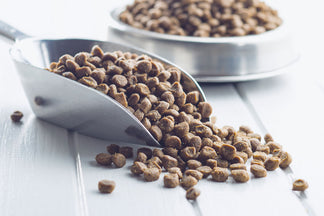Turmeric is a golden-colored wonder spice with significant health advantages for both pets and humans alike. This herb is a potent anti-inflammatory and pain-reliever that promotes a healthy heart.
Turmeric has been utilized in Asia for thousands of years, praised for its
detoxifying capabilities.
Today, keen pet owners are adding it to their pet’s diet to fortify their overall wellness.
Reducing inflammation
The active compound in this zesty herb is curcumin, an antioxidant with antibacterial and antiviral properties. When turmeric is implemented as a consistent component of a pet’s diet, it can holistically ease pain from joint inflammationand help combat memory loss.Additionally, turmeric increases bile production in the liver, helping your four-legged friend break down fats to promote healthy digestion.
Helping for a healthy heart
Furthermore, curcumin is a blood thinner which rids the body of excess cholesterol and aids in reducing the risk of blood clots. Blood clots in our pets mean an increased chance of heart issues. This medicinal herb is potent and, unlike pharmaceutical drugs, has no toxic effect on the body.
If you’re ready to start introducing turmeric into your pet’s diet, the regular dosage should be about 1/8 to 1/4 of a teaspoon per 10 pounds of your pet’s total body weight.
The best practice is to start slowly and work up to a higher dosage if your pet responds well.
Like with any ingredient, there are pros and cons to supplementing your pet’s diet with turmeric.
The Cons
The curcumin in turmeric can be hard for pets to digest when given by itself. To increase absorption, try combining turmeric with a healthy oil like coconut oil when feeding it to your pet. Black pepper is also an efficient absorber of the herb.
We don't advise giving your pet turmeric pills or capsules, as they contain extreme concentrations of curcumin making them difficult for pets to digest.
Some pets will respond extremely well to turmeric while others may be more sensitive. Turmeric is a binding agent and can sometimes cause constipation in pets. The spice may also cause certain pets to have an upset stomach.
Before adding turmeric to your pet’s kibble, be sure to consult with your veterinarian to discuss what will be best for your particular furry friend.

 Food
Food
 Food
Food
 Food
Food
